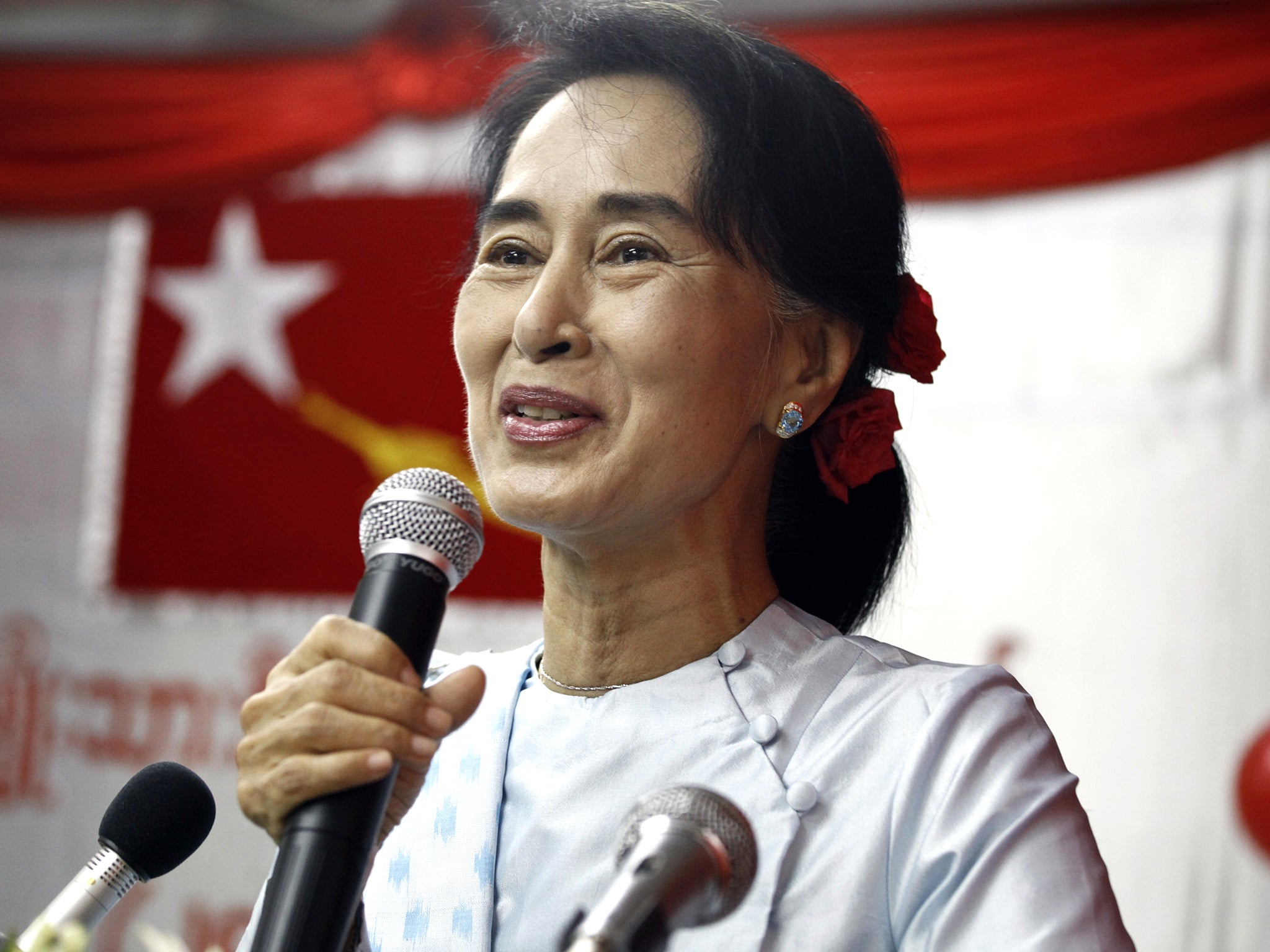Aung San Suu Kyi is only the latest to fail the Rohingya. More of this and the result will be genocide
Various political powers are shirking responsibility - including the British Government

In recent days, Nobel laureate Aung San Suu Kyi, having just been awarded a prestigious human rights prize by the EU, sat down with the BBC in London and in her beguilingly gentle fashion denied the ethnic cleansing of one of the world’s most vulnerable minorities.
In a manner reminiscent of Burmese President Thein Sein, a master in the art of evasive platitudes, the usually eloquent democracy activist issued a series of slippery answers in response to repeated questions on the issue from journalist Mishal Husain.
Her statements, at times bordering on abject denialism, have already been ably eviscerated by David Blair in the Telegraph.
Suu Kyi's is a betrayal that will hit the affected Rohingya ethnic minority hard; not least because the group are in desperate need of support from principled politicians, but also because her contentions - which will be taken seriously by many - were as false as they were cowardly.
A compelling body of evidence compiled by rights groups, journalists and academics strongly indicates that the crime she denies is taking place is really happening. Others have gone further: the Toronto based Sentinel Project recently described Burma as “a textbook case” of a nation on the brink of genocide - an analysis apparently shared by specialists in the field.
The Rohingya occupy Rakhine state in west Burma, where their identity is officially denied, well over 100,000 are confined to squalid Internally Displaced Persons (IDP) camps and others subsist in heavily-policed settlements in which discrimination and abuse have been the norm for decades.
Just weeks ago during a visit to one of the IDP camps near Sittwe, the capital of Rakhine state, I was told by former residents of the last remaining Muslim quarter in the nearby city that they had been forced into their new surroundings by government officials. As I have written elsewhere, their accounts contrasted sharply with government claims that they left their old home “voluntarily.”
I also heard various corroborating accounts of forced registration on government forms that officially identify the Rohingya as “Bengalis”- a “key indicator of genocidal intent” according to Sentinel - accompanied by threats of further massacres if they do not comply.
All of which, of course, is deeply troubling and appears to support the judgements of rights groups and not 'the Lady.'
It also throws into relief the fact that, despite the urgency of the situation, various political players who could make a difference appear willing to sacrifice principle at the altar of political expediency by opting to do very little.
The British government, which likes to advertise its self-professed commitment to human rights, is a case in point. London has done little to substantially take up the cause of the minority; rather it has sought, like much of Europe, to gain a foothold in the country considered by many to be the world’s “next economic frontier.” In order to boost ties between the two nations, the UK has even provided assistance to Burma to conduct its upcoming census, a move that has been described as “British aid for ethnic cleansing”, given the alleged role of the population survey in official attempts to deny the existence of the Rohingya.
London has also, against the protests of rights groups, steered ahead in its decision to deepen relations with Burma’s military, even as forces under the command of Naypyidaw are accused of atrocities across the country- most notably in Kachin state, and also, of course, against the Rohingya.
As I have argued many times before, all of this is deeply shameful, and if things continue as they are, the resulting human catastrophe in Rakhine state will be a crime to which those who stayed silent and negligent at moments like these will have effectively consented to, whatever their excuses later on.

Join our commenting forum
Join thought-provoking conversations, follow other Independent readers and see their replies